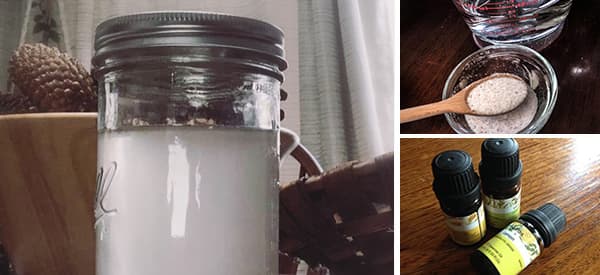
DIY Deep-Cleaning Herbal Mouthwash
The deeper you dive into natural herbal remedies, the more you realize how easy it really is to replace many of your daily hygiene products with safer homemade options. Your dental hygiene products are no exception.
You probably know by now that most mainstream oral hygiene products are not only toxic, but expensive and even counterproductive to dental health in many ways.
Lucky for us, it’s not that hard to make a completely natural homemade mouthwash that includes minerals and essential herbal essential oils known to support a healthy mouth microbiome. And yes, your mouth has a microbiome, just like your gut does.
How Herbal Oils Support Oral Health
There are so many different ways you can make an herbal mouthwash. Some people make mouthwash out of an herbal tea base, and others (like this recipe) are made from essential oils. I prefer oils because they don’t leave behind sediment that can grow bacteria easily. The other reason is that more studies have been conducted on plant oils specifically.
Essential oils nourish the microbiome in your mouth, letting some of the good bacteria live while getting rid of the bad bacteria—kind of like what happens in your gut when you take probiotics.
Mainstream dentistry doesn’t really consider or even acknowledge the oral microbiome, which shouldn’t be a big shock. Regardless, this is why when using all the recommended oral care practices, people still end up with dental problems.
⇒ How to Grow Penicillin at Home (Video)
Let’s look at the essential oil ingredients used in this homemade mouthwash recipe.
Tea Tree Oil
Tea tree oil (Melaleuca alternifolia) is an excellent choice for your healthy homemade mouthwash. In clinical trials, tea tree was found to have an inhibitory effect on various bacterial colonies. It didn’t disappoint when testing its antibacterial action, specifically against oral pathogens either. Tea tree is antiseptic and also a very well-known antifungal. Fungal infections like thrush flourish in the warm moist areas of the mouth and can lead to tooth decay and dry mouth.
Peppermint Oil
Peppermint (Mentha piperita) oil is one of the most popular and widely used essential oil in oral hygiene products. Menthol is recognized as the main compound found in peppermint and is the ingredient responsible for its spiciness. Peppermint oil is antiseptic, antibacterial, and antifungal, which is why it’s one of the most effective essential oils for bad breath. In addition, Peppermint oil inhibits the multiplication of staphylococci and exhibits fungicidal activities against both the standard and clinical strains of Candida.
Peppermint oil also shows a similar antifungal effect against the azole-resistant and azole-susceptible strains. This inhibition in fungal strains can help decrease the likelihood of developing oral diseases.
Clove Oil
The main constituent found in clove bud oil is eugenol. Eugenol is notorious for its therapeutic properties, which is why it’s often used in dentistry.
Clove oil is antioxidant and offers very powerful radical scavenging capabilities. It’s also antifungal. Clove oil and its primary ingredient—eugenol—also reduce the number of fungal cell membranes. Likewise, C. albicans are inhibited by this helpful herb. Clove is also antibacterial, which can have an inhibitory effect on stubborn germs.
Other Mouthwash Ingredients
Mineral Sea Salt – Mineral salts can help provide essential minerals for the teeth. Sea salt helps stimulate cell renewal and is a natural disinfectant and antiseptic. Sea salt is also a potent anti-inflammatory. Adding sea salt to your mouthwash makes it helpful in drawing out nasty pathogens that like to reside in the tissues of your gums. It also helps raise the pH in your mouth, and bacteria cannot survive in a highly alkaline environment.
And interestingly, sea salts even create a “salt barrier” in the mouth, keeping pathogens from getting in—in the first place.
Stevia (Optional) – The addition of stevia is just to make it a little sweeter.
Filtered Water – You can use spring, distilled, or purified water as long as it’s free of bacteria and germs.
Easy Homemade Mouthwash
Now that you know a little more about essential oils for oral care, it’s time to mix up your mouthwash!
You will need:
- 2 cups filtered water
- 1 teaspoon of mineral sea salt
- 10 drops of organic peppermint essential oil
- 6 drops of organic tea tree essential oil
- 3 drops of organic clove bud essential oil
- 6 drops of liquid stevia
- A pint-and-a-half to a quart-size mason jar for storage or another container
Directions:
- Either in the mason jar or a liquid measuring cup, measure two cups of water.

- Add the mineral sea salt and mix it around a little to dissolve.

- Add the essential oils and stevia drops.

- Pour the contents into your mason jar or container of choice. Store in a cool, dry place.

It’s not recommended to use essential oils directly on the skin. Instead, make sure you dilute them with some kind of liquid or carrier oil before use. Also, some people do sometimes react to certain essential oils for various reasons. If you have any concerns about using essential oils, you can talk to an essential oil specialist or a healthcare provider familiar with plant oils. Also, this recipe may not be appropriate for kids. These oils are a bit spicy. However, you can make a kid’s mouth rinses easily by using citrus oils like orange, lemon, and tangerine, which are milder.
This mouthwash should last in a cool dark place or in the refrigerator if you want to be extra safe. But, of course, you don’t want to mix it up and let it sit forever, either. You can also add in some trace mineral drops or other oils suitable for oral care, like cinnamon and lemon. You can try different ratios and see what you like best.
Happy rinsing!
You may also like: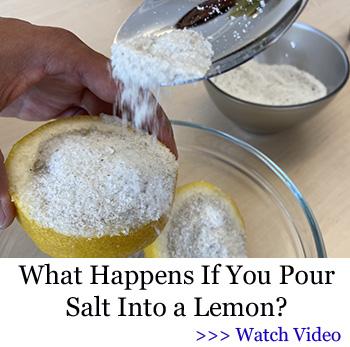
How To Reduce Dental Pain Naturally
Why You Should Take 2 Cloves Every Day (Video)
How To Make A Natural Toothpaste At Home

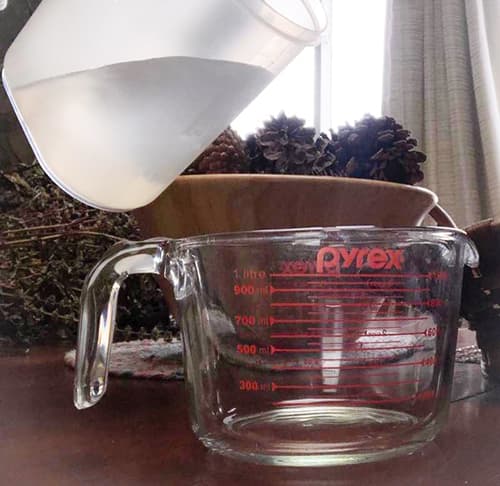
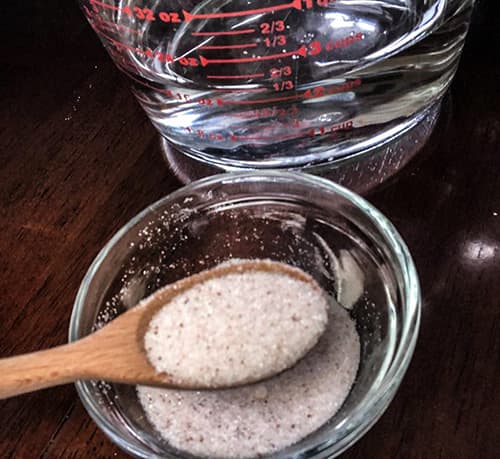
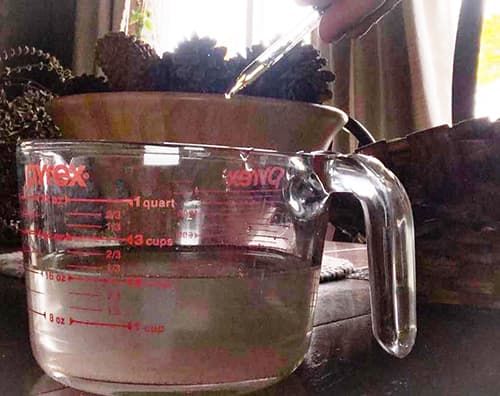
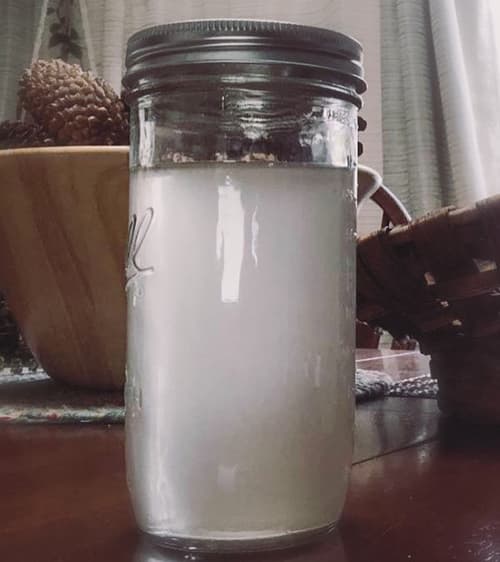
What are the best quality value essential oils you recommend?
I like Eden’s Garden
https://www.edensgarden.com/
The ones I’m familiar with are Purify (they are certified organic). Doterra, and Young Living. I’m sure there are others out there but these have helped me.
I use essential oils from Mt. Rose Herb company.
What would be a safe expiration date to use?
What is the carrier you use?
Without a carrier oil you are putting undiluted oils into your body, which can be quite dangerous.
The Tisserand Institute can be quite helpful in regards to safety and I tend to defer to their guidance. I would rather be safe and healthy, instead of hurting from chemical burns from essential oils.
Hello JF,
Thank you for your comment!
For this herbal mouthwash recipe, the author uses 2 cups of filtered water to dilute the essential oils. As a general rule, you should keep concentration levels of essential oils below 5 percent.
Many blessings and good health!
I love this, what a wonderful site. I am Indigenous (But never knew my culture until I explored it through research of native plants to Canada) I would love to combine our skills and knowledge and work along side you guys at this site, I will be on our orchard farm this spring and in the development phase of what we shall be aiming this towards but I would love your input, advice, or partnership…its all about educating and research! Anywho, before I get carried away, So nice to meet you!
-Nicole